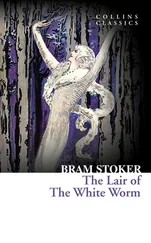The prosecutor David Ga  par was entirely unaware of his wife’s initiative to send the adolescent — who was, at that moment, generally more preoccupied with basketball than with the shadows of politics — on such a mission. Eva Ga
par was entirely unaware of his wife’s initiative to send the adolescent — who was, at that moment, generally more preoccupied with basketball than with the shadows of politics — on such a mission. Eva Ga  par arranged for the boy’s absence not to produce any suspicion. The son sometimes used to sleep at the house of a fellow student, Tibor, whose parents kept the secret.
par arranged for the boy’s absence not to produce any suspicion. The son sometimes used to sleep at the house of a fellow student, Tibor, whose parents kept the secret.
Augustin Gora instantly registered the concern on the faces of Lu’s parents. They already knew, it seemed, about David Ga  par’s dismissal and about similar cases. Comrade Serafim and Comrade Ga
par’s dismissal and about similar cases. Comrade Serafim and Comrade Ga  par were merely cousins, but fear was transmitted quickly, like a virus. Worried about their own situation, they didn’t discuss the news with their son-in-law, who was also asking himself, then — and continued to ask himself afterward — if they had confided in friends, and who these friends could have been. He preferred to believe that, if these friends existed, they would have counted him among them.
par were merely cousins, but fear was transmitted quickly, like a virus. Worried about their own situation, they didn’t discuss the news with their son-in-law, who was also asking himself, then — and continued to ask himself afterward — if they had confided in friends, and who these friends could have been. He preferred to believe that, if these friends existed, they would have counted him among them.
On that dusty July afternoon Peter was invited to sit in the large, red leather armchair in the living room, to relate the details of his message. Gora felt the danger migrating from the western borders of the country toward his new family.
The young athlete became instantly contaminated with the unease of those listening while he described the absurd and sudden raid of his parents’ house. The former watchmaker David Ga  par was inexplicably dismissed from his function as a prosecutor of socialist justice! If the Party wants to, it sends a watchmaker to a one-year school and turns him into a prosecutor overnight; and if the Party wants to, the prosecutor, overnight, is no longer a prosecutor. He couldn’t be accused of dishonesty or politically iconoclastic actions, just for the excessive intransigence with which he served the Cause. The pretext of the dismissal remained obscure; the disgrace could have consequences just as absurd as the motivation. This was the message with which Eva Ga
par was inexplicably dismissed from his function as a prosecutor of socialist justice! If the Party wants to, it sends a watchmaker to a one-year school and turns him into a prosecutor overnight; and if the Party wants to, the prosecutor, overnight, is no longer a prosecutor. He couldn’t be accused of dishonesty or politically iconoclastic actions, just for the excessive intransigence with which he served the Cause. The pretext of the dismissal remained obscure; the disgrace could have consequences just as absurd as the motivation. This was the message with which Eva Ga  par entrusted her young son.
par entrusted her young son.
The silence was soon followed by the assurances with which the hosts overwhelmed the guest: it was nothing but a mistake or misunderstanding; David wasn’t the kind to take such an injustice sitting down; he’ll contest it, demand recourse and be exonerated in the end. Rivalries and intrigues exist everywhere people exist; the indignities and mistakes couldn’t go on forever; the young student will find out, and soon, because justice always prevails, after all. The guest was served with sweets. Lu showed him the family library and took him on a long walk through the capital. On the way back, the traveler was advised to rest, as he faced a sleepless night on the way home.
That night, on the way back from taking his guest to the train, Gora learned the story of Peter’s birth.
The watchmaker David Ga  par had succeeded in hiding during the first year of the war, and then the second year, as well, together with his wife and daughter; but in the spring of 1944, they were discovered and sent to Auschwitz by the Hungarian authorities who presided over Transylvania. His wife and daughter were gassed immediately after arrival. David survived, working first in a little workshop where the gold taken from the living and the dead was turned into jewelry. He was transferred to hard — brutal — labor. He was lucky to possess a vigorous constitution. After the death of his loved ones, he put aside sentiments, worries, and became alone and strong. Indifferent, calculated, determined to survive.
par had succeeded in hiding during the first year of the war, and then the second year, as well, together with his wife and daughter; but in the spring of 1944, they were discovered and sent to Auschwitz by the Hungarian authorities who presided over Transylvania. His wife and daughter were gassed immediately after arrival. David survived, working first in a little workshop where the gold taken from the living and the dead was turned into jewelry. He was transferred to hard — brutal — labor. He was lucky to possess a vigorous constitution. After the death of his loved ones, he put aside sentiments, worries, and became alone and strong. Indifferent, calculated, determined to survive.
Liberated by the Soviets, he met his future wife in the triage hospital for former detainees. They were married on the long way back home.
Eva, ten years younger than he, didn’t want to return to the place from which she was sent to her death. She dreamed of the Promised Land, the land set aside for survivors. David proved unyielding, however. Determined to come home, to look into the eyes of his former friends and neighbors, the former policemen and politicians who’d erased his name from the roster of the living.
They returned in the fall of 1946, after detours through devastated Europe. David and Eva, his new wife, and the infant Peter, born in Belgrade, along the complicated detours of the return. Oti-lia Serafim, Ludmila’s mother, contended that Peter might not even be David’s son. “In the chaos of the liberation, copulation was general. Anyone with anyone. A great orgy to enliven the dead.”
“The story disturbed us all,” Lu confessed. “Even today the family is uncomfortable with it. We weren’t that well off either during the war. Filth, humiliation, danger, labor camps, daily panic. But David’s story is still something else entirely.”
Once back in his native town, the watchmaker David Ga  par didn’t look into the eyes of former neighbors or policemen or politicians, as he’d sworn he would. He simply refused to remember the concentration camp. He called on his friends and family to do the same.
par didn’t look into the eyes of former neighbors or policemen or politicians, as he’d sworn he would. He simply refused to remember the concentration camp. He called on his friends and family to do the same.
Lu’s face had become slender, as in old biblical images. His Madonna had paled. Gora was shocked at the effect those very words had had on her. Vulnerable to emotive excesses, she herself intensified them. Her fragility seemed like the visible face of a presentiment, suddenly alerted. She intercepted, or allowed herself to be intercepted by, vague signs; her incertitude prompted her unease.
She stopped, to calm her pulse. She looked increasingly pale.
“I can feel what you’re thinking. No, there was never any room in my family for religion, as you well know. Not in the past, and even less so now, when atheism has become opportunism. My parents were freethinkers before becoming Communists. They instilled in me their rationalism, and solidarity with the humiliated and oppressed. I had no access to mystical books or people, and I didn’t attend debates about the transcendent. And still, again and again, moments come when something obscure slips by me, or derails me. Something leaves me vulnerable. Susceptible to I don’t know what. Something unknown lives here, hidden, inside me.”
All of a sudden, she shook her rich, black hair. Her face remained white; her eyes burned like a fever. In the course of a brief and nervous spasm, she seemed to have shaken her burden loose, along with her hair.
“I was thinking of Peter. When the boy was born, David Ga  par said to his wife, ‘He’s going to live in another world, and we, with him.’ And Eva told him, ‘He was born to marked parents. The New World contains the Old World, the past will live in him, as well.’ They never revealed to Peter that his father had been married before, and that he’d had another daughter, a sister who was never to be a sister. My mother doubts that David is actually Peter’s father. Only he and Eva know, maybe not even they.”
par said to his wife, ‘He’s going to live in another world, and we, with him.’ And Eva told him, ‘He was born to marked parents. The New World contains the Old World, the past will live in him, as well.’ They never revealed to Peter that his father had been married before, and that he’d had another daughter, a sister who was never to be a sister. My mother doubts that David is actually Peter’s father. Only he and Eva know, maybe not even they.”
Lu’s voice and gaze had fallen.
And now that he was in the New World, how much had Peter brought from the past, and how much had Lu? Gora asked himself. What else did they bring?
Later, Professor Gora learned that Peter had refused the “survivor” status that the well-intentioned Americans were prepared to give him, just as he’d always refused any allusion to the tragedy out of which he was born. He distanced himself abruptly from any discussion about the horror that was responsible for his parents’ union.
Читать дальше

 par was entirely unaware of his wife’s initiative to send the adolescent — who was, at that moment, generally more preoccupied with basketball than with the shadows of politics — on such a mission. Eva Ga
par was entirely unaware of his wife’s initiative to send the adolescent — who was, at that moment, generally more preoccupied with basketball than with the shadows of politics — on such a mission. Eva Ga 










